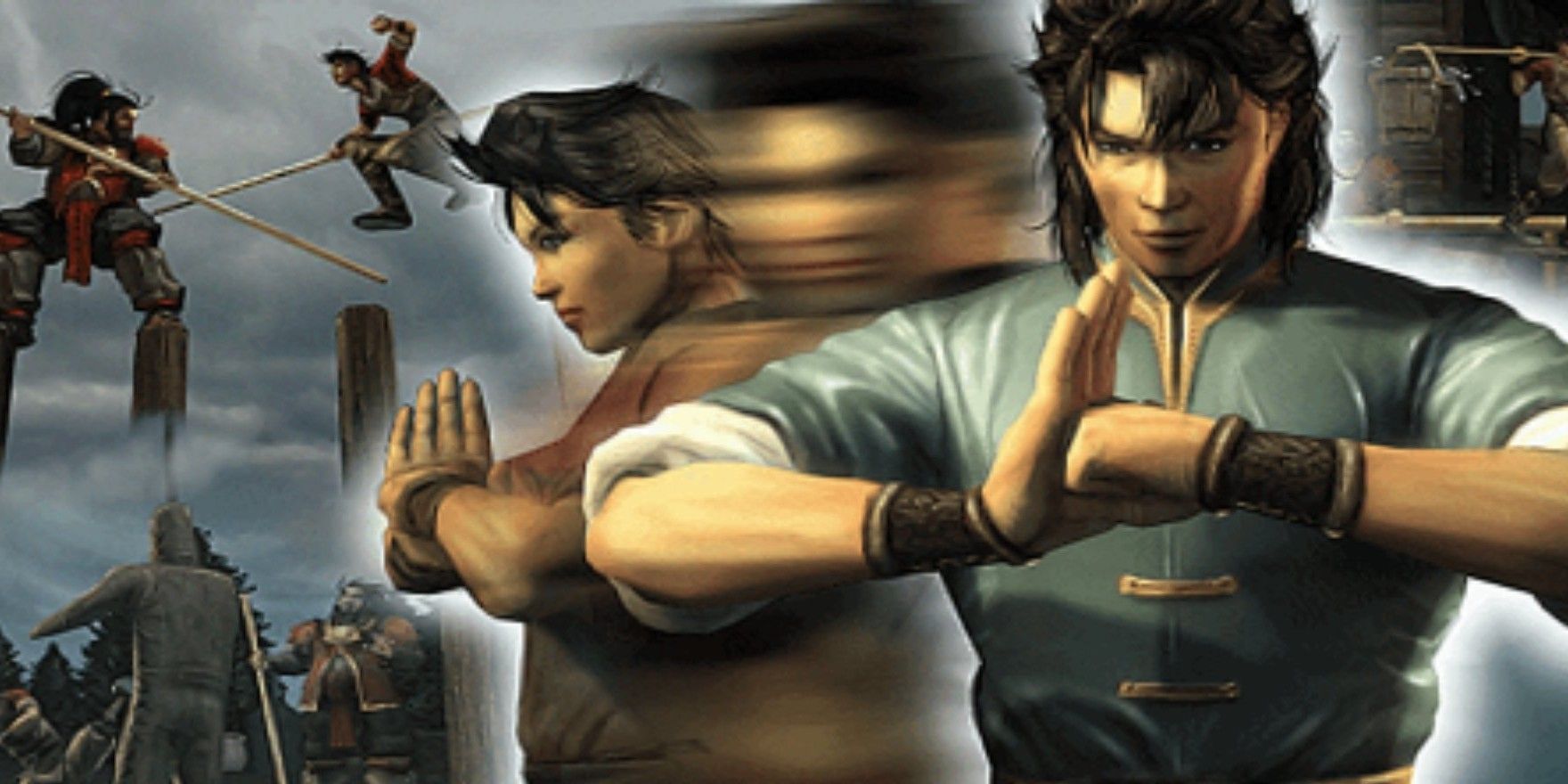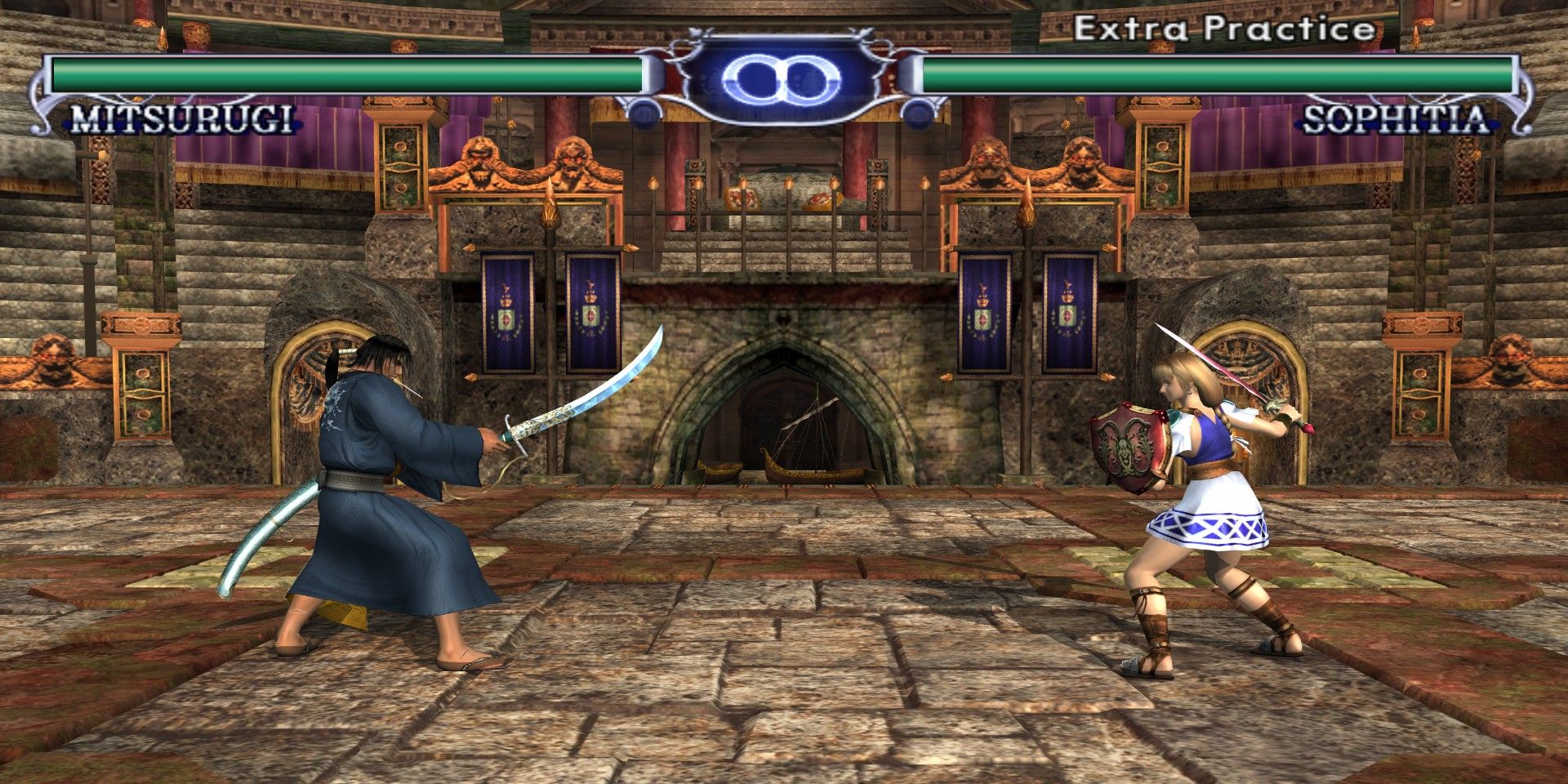Single-player content in fighting games is sorely lacking nowadays; modes like Konquest from Mortal Kombat are practically non-existent. With developers increasingly concerned about continuing engagement in fighting games and attracting new player bases, it's curious that single-player content is the continued afterthought in the fighting genre. However, developers may need to look beyond the competitive scene and consider a depth of content and interactivity beyond the network-focused experience to draw a more extensive player base.
Konquest mode was an experience like none other. The mode evolved from the original Mortal Kombat: Deadly Alliance, where it started as a tutorial mode but was refined two titles later, in Mortal Kombat: Deception. Konquest was a Mortal Kombat RPG; in this mode, players would assume the role of a newly created character named Shujinko, traveling through the six realms established in Mortal Kombat lore. Experiencing life from a young to wisened old warrior, players would go through the story meeting various characters in the Mortal Kombat universe. During the player’s life, they would unlock things like characters, arenas, and moves for Shujinko, building him into a more potent fighter for more modes. Konquest mode had several goals in mind, from educating players on how to play the game to giving incentives to play the game for those who may not feel confident facing other players or those who enjoy single-player content.
Through the eyes of Mortal Kombat's Shujinko, the single-player experience is where the Konquest mode excels. The mode serves as an engaging and educational tool for shepherding players into the 1v1 combat that developers spend so much time refining and balancing now. Working from a small move set, the player slowly learns the game's mechanics and builds their understanding of the game's flow, all while having something to work toward in the form of unlockables and continuing the admittedly mediocre-yet-enjoyable story.
Fighting Games Can Reach A Larger Player Base Via Single Player Modes
Yet developers seem to be trimming modes like Mortal Kombat: Deception's Konquest down to the bare bones, leaving them with hollow arcade modes that follow the 6-8 consecutive structure with maybe a two-minute slideshow at the end of the experience. Even story modes in fighting games aren't safe, as Street Fighter 5's initial launch was a more reductive version of a standard arcade mode. Trimming the single-player content may lead to more development time for a more refined 1v1 experience, but the trade-off is a consequence that these developers are either willing to risk or aren't accounting for at all.
A significant goal of fighting games is to continue to expand the player base and increase concurrent online players. However, games need to lower the barrier of entry and shed the elite association aligned with this niche genre, all while incentivizing those just looking to have fun during their downtime. Looking back from the '90s and 2000s, games with endearing but weird fighters and lore like Tekken 3, Mortal Kombat: Deception, and Soul Calibur 2 led the industry for single-player content. Modes like Weapon Master from Soul Calibur 2 had the player traveling across the world in a grid-like dungeon crawling mode that used the game's fighting mechanics. Strange buffs would be implemented in various matches making certain types of strategies no longer viable, forcing the player to learn or utilize unique tools added to the mode to win the battles. The rewards were a wide array of new weapons for every character in the game while providing a wholly unique experience unable to be replicated in the traditional 1v1 style.
Many critics and fans have fond memories of these unique adventure modes. While publishers may wish to turn costumes, skins, and characters as DLC instead of making them rewards in-game, there are consequences to this approach. By not making some rewards attainable through single-player content like Konquest or Weapon Master, these games remain locked to a concrete player base with very little room for new inductees. If companies that still churn out fighting games wish to continue to see this genre expand beyond a niche, then it's time to revisit content similar to Mortal Kombat: Deception's Konquest mode to open the door to new players.


